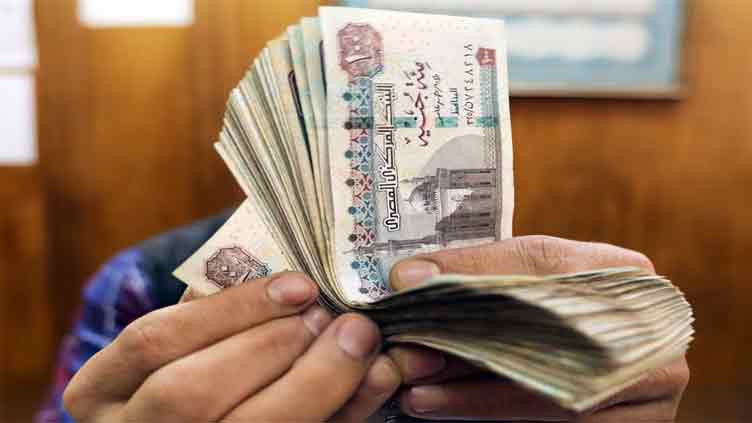Egypt’s Currency Freefall After Central Bank Goes for Free Trading
The Egyptian pound plummets as Central Bank implements a surprise interest rate increase of 600 basis points, allowing the currency to trade freely

In a bold move to restore economic stability and attract Gulf investment inflows, Egypt’s central bank announced an unscheduled interest rate hike of 600 basis points on Wednesday. Concurrently, the bank declared that it would allow the Egyptian pound to trade freely, resulting in an immediate sharp decline against the US dollar.
The Egyptian pound, which had been staunchly defended at around 30.85 to the dollar for months, saw a rapid devaluation, surpassing 45 pounds to the dollar as markets opened. This significant devaluation is a response to long-standing demands from the International Monetary Fund (IMF) for a more flexible exchange rate.
While Egypt had previously pledged to adopt a more flexible exchange rate, it often reverted to managing the currency closely whenever the pound weakened. However, this time, the government appears to be banking on substantial hard currency inflows from investment projects, notably a $35 billion deal with the United Arab Emirates signed in late February, to prevent a freefall.
The decision to devalue the currency has seen positive reactions in the international financial markets. Egypt’s international bonds experienced a surge, with the 2047 bond leading the gains at 83.2 cents, up 3.5 cents after the central bank’s announcement. The premium investors demand for holding Egypt’s international bonds over safe-haven US Treasuries also tightened to 529 basis points, reaching its lowest level since June 2021.
As part of its monetary tightening strategy, the central bank raised the overnight lending rate to 28.25% and the overnight deposit rate to 27.25%. These measures are aimed at ensuring a decline in underlying inflation and facilitating a smooth transition towards a more flexible exchange rate. The central bank emphasized that it would continue to target inflation as its nominal anchor while allowing the exchange rate to be determined by market forces.
The move to unify the exchange rate is deemed crucial by the central bank, as it aims to eliminate foreign exchange backlogs. Despite facing a chronic shortage of foreign currency, the Egyptian pound has remained fixed at 30.85 to the dollar over the past year, as the central bank endeavored to defend its value.
The recent announcement of a $35 billion investment by the Emirati sovereign fund ADQ has alleviated some pressure on the Egyptian pound in the black market. The government asserts that $10 billion of this investment has already been transferred, with further procedures in place to convert an additional $5 billion from existing deposits in Egypt into Egyptian pounds.
However, analysts remain cautious, expressing doubts about Egypt’s commitment to long-awaited structural reforms, including the floated Egyptian currency and reducing the dominant economic role of the state and the military. The success of these measures hinges on the government’s ability to address these structural challenges and implement reforms that have been deferred for too long.





